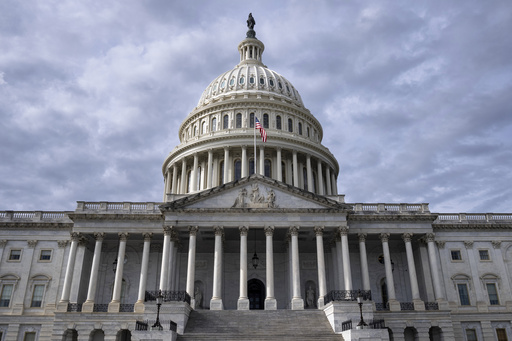This will be a pivotal period, marking the transition between the election and the conclusion of the current congressional term. While Republicans are eager to shift their focus to next year, when they expect to dominate the White House and possibly both chambers of Congress, Democrats aim to push through as many of their legislative priorities as possible while they still retain a Senate majority.
Looking ahead to the final weeks of the 118th Congress, here’s an overview of the current situation:
**Government Funding**
In September, lawmakers averted a shutdown by approving a temporary extension of government funding before the elections. However, they face a deadline of December 20 to pass full-year spending bills or another extension.
According to unofficial sources within the House and Senate leadership, it is likely that Congress will pass another short-term funding extension into the early months of next year rather than finalizing the spending bills. Significant disparities in spending levels and policy priorities between the two parties remain. Furthermore, Republicans might be less inclined to engage in negotiations, given their soon-to-be control of both the White House and potentially the House of Representatives.
Whether President-elect Donald Trump will want to tackle government funding in the early days of his administration remains unconfirmed, as he may prioritize other issues first. A prior agreement involving then-Speaker Kevin McCarthy set a 1% spending increase for both defense and non-defense programs this fiscal year. However, the Senate is proposing to exceed this limit, while House Republicans are advocating for more significant cuts to non-defense programs, complicating potential agreements.
**Disaster Relief**
After replenishing the Federal Emergency Management Agency’s (FEMA) disaster relief fund with over $20 billion in September, lawmakers are now anticipating the need for additional funding as those resources are quickly depleted following Hurricanes Helene and Milton.
A supplemental funding package for disaster relief is likely to be addressed during the lame-duck session, but first, Congress awaits a funding request from the Biden administration outlining the necessary amounts for FEMA’s disaster fund and other related aid programs, like the Small Business Administration’s low-interest loans for impacted businesses and homeowners. This program exhausted its funds in mid-October but continues accepting applications, positioning itself to act promptly once Congress allocates more resources.
Lawmakers expect that the funding request could be substantial. After visiting North Carolina post-Hurricane Helene, House Speaker Mike Johnson indicated that Congress would work in a bipartisan manner to ensure adequate support for communities in need of recovery assistance.
**Defense Policy Bill**
For over 60 years, Congress has enacted an annual defense policy bill that authorizes spending on weapons systems and establishes troop pay levels. The House has passed a $895.2 billion defense bill, reflecting a 1% rise from the previous fiscal year while remaining consistent with previous agreements. It includes a significant pay increase of 19.5% for junior enlisted members.
The bill’s inclusion of several conservative policy mandates, such as changing the Pentagon’s abortion-related travel reimbursement policy, has turned this traditionally bipartisan piece of legislation into one met with significant opposition from House Democrats.
The Senate’s version of the defense bill proposes a higher authorization of $919.9 billion and has advanced out of committee but has yet to be debated on the Senate floor due to other legislative priorities. Nonetheless, negotiations are ongoing to resolve discrepancies between the two versions.
**Judicial Confirmations**
Following the significant number of judicial confirmations during Trump’s presidency, Democrats have made advancing President Biden’s judicial nominations a major goal. So far, 213 of Biden’s nominees have been confirmed by the Senate. Senator Dick Durbin, the committee chair, has expressed intentions to confirm as many remaining nominees as possible before the current Congress concludes.
With 17 nominations pending on the Senate floor and additional cases in committee, there is potential for Biden to surpass Trump’s total, although Trump appointed three Supreme Court justices compared to Biden’s single appointment, and he achieved more confirmations for appellate court judges.
Senate Majority Leader Chuck Schumer has scheduled votes on two judicial nominees for next week, underscoring the administration’s commitment to this priority during the lame-duck period.



